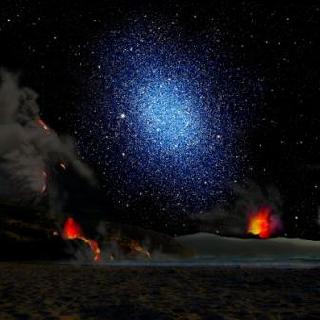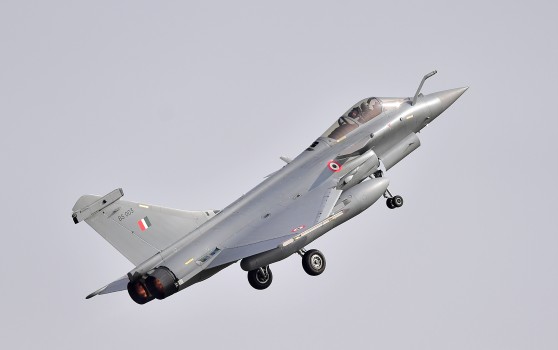
This artist's conception shows a dwarf galaxy seen from the surface of a hypothetical exoplanet. Photo: David A. Aguilar (CfA).
CAMBRIDGE, MASSACHUSETTS (BNS): The nature of dark matter has become even more mysterious, said researchers of a new study.
Lead author Matt Walker, a Hubble Fellow at the Harvard-Smithsonian Center for Astrophysics said, "After completing this study, we know less about dark matter than we did before."
"Our measurements contradict a basic prediction about the structure of cold dark matter in dwarf galaxies. Unless or until theorists can modify that prediction, cold dark matter is inconsistent with our observational data," he said.
Most astronomers assume that dark matter consists of "cold" (i.e. slow-moving) exotic particles that clump together gravitationally. Over time these dark matter clumps grow and attract normal matter, forming the galaxies we see today.
Walker and his co-author Jorge Peñarrubia (University of Cambridge, UK) analyzed the dark matter distribution in two Milky Way neighbors - the Fornax and Sculptor dwarf galaxies.
These galaxies hold one million to 10 million stars, compared to about 400 billion in our galaxy. The team measured the locations, speeds and basic chemical compositions of 1500 to 2500 stars.
Their data showed that in both cases, the dark matter is distributed uniformly over a relatively large region, several hundred light-years across. This contradicts the prediction that the density of dark matter should increase sharply toward the centers of these galaxies.
"If a dwarf galaxy were a peach, the standard cosmological model says we should find a dark matter 'pit' at the center. Instead, the first two dwarf galaxies we studied are like pitless peaches," said Peñarrubia.
The new measurements imply that either normal matter affects dark matter more than expected, or dark matter isn't "cold." The team hopes to determine which is true by studying more dwarf galaxies, particularly galaxies with an even higher percentage of dark matter.
 Previous Article
Previous Article Next Article
Next Article













The Indian Air Force, in its flight trials evaluation report submitted before the Defence Ministry l..
view articleAn insight into the Medium Multi-Role Combat Aircraft competition...
view articleSky enthusiasts can now spot the International Space Station (ISS) commanded by Indian-American astr..
view article